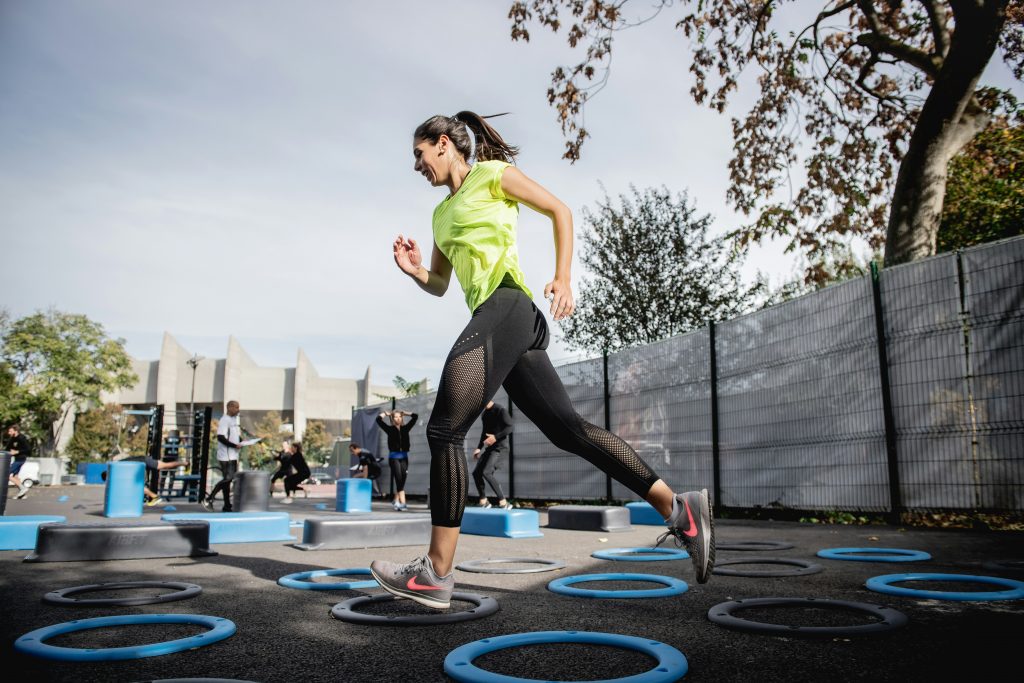


Athletes know that endurance is key to excelling in their sport. Whether running the soccer field, dominating the basketball court, or powering through a lacrosse game, stamina is needed to be able to perform. But how can athletes increase endurance to maximize performance to take athletic performance to the next level?
There are a few strategies that can help increase endurance. But first, it’s important to understand endurance.
What is Endurance?
By definition, endurance is the ability to sustain physical activity over an extended period without fatigue.
Athletes may notice they get tired much later compared to when they first started in the sport. Conditioning and practice have helped to increase endurance. For example, a runner may be exhausted after running a mile when they start but may find they enjoy distance races once they build up stamina and their fitness level to be able to run longer at their desired pace. When we speak about endurance it’s not just how fast you can run or how long you can play a game.
Endurance is being able to maintain your highest level of performance throughout the entire game, competition, or workout.
To improve endurance, athletes need to work on their cardiovascular fitness, muscular strength, and mental resilience.
Cardiovascular Fitness
Athletes need a healthy and strong cardiovascular system to perform their best. Working on overall fitness will in turn boost endurance. The more you workout, the more the body adapts and can handle the physical stress.

Photo by Gabin Vallet on Unsplash
To improve cardiovascular fitness, incorporate aerobic exercises such as running, cycling, or swimming into your training. This should be at least 30 minutes of moderate to vigorous aerobic activity.
Interval training, which alternates between periods of high-intensity exercise and recovery, is one of the best ways to build endurance and increase your body’s ability to use oxygen efficiently.
Muscular Strength and Endurance
Strengthening the muscles is key when looking to build endurance. Strength training exercises such as squats, lunges, push-ups, and planks into your workouts help build muscular strength and endurance. While these are all done with just body weight, using weights is also a great way to increase strength.
It’s best to do compound movements that target multiple muscle groups at the same time. These include overhead presses, deadlifts, and bench presses.
To build endurance, gradually increase weight or keep the weight and add more reps to continue to progress.
Mental Resilience
Building endurance is as physical as it is mental. Having grit and determination is a necessity as an athlete. Develop mental toughness by setting goals, staying focused and positive during workouts and competitions, and pushing through discomfort and fatigue.
Goals should be realistic. Set both short-term and long-term performance goals.
Visualization techniques are a great way to mentally prepare for challenges. Visualize yourself succeeding.
Nutrition and Hydration
Proper nutrition and hydration are essential for fueling your body and maximizing performance. Make sure to eat a well-balanced diet that includes lean proteins, complex carbohydrates, healthy fats, and a variety of fruits and vegetables. Stay hydrated by drinking water throughout the day, especially before, during, and after exercise. Sports drinks or electrolyte supplements are beneficial during intense training sessions or competitions to replenish lost fluids and electrolytes.

Rest and Recovery
Rest and recovery are just as important as training when it comes to building endurance. The body needs rest to repair and rebuild the muscle tissues that have been stressed during exercise.
Make sure to get an adequate amount of sleep each night to increase endurance.
Incorporate rest days into your training schedule to prevent overtraining and reduce the risk of injury.
Stretching and foam rolling also promote recovery and reduce muscle soreness.
Putting It All Together
Boosting endurance requires commitment, consistency, and hard work. But the rewards are well worth it. Incorporating variety in training including cardiovascular exercise, strength training, plus proper nutrition and hydration all help increase endurance. Make sure to rest and don’t forget the mental preparation need for sports performance.










No comments so far.
Be first to leave comment below.